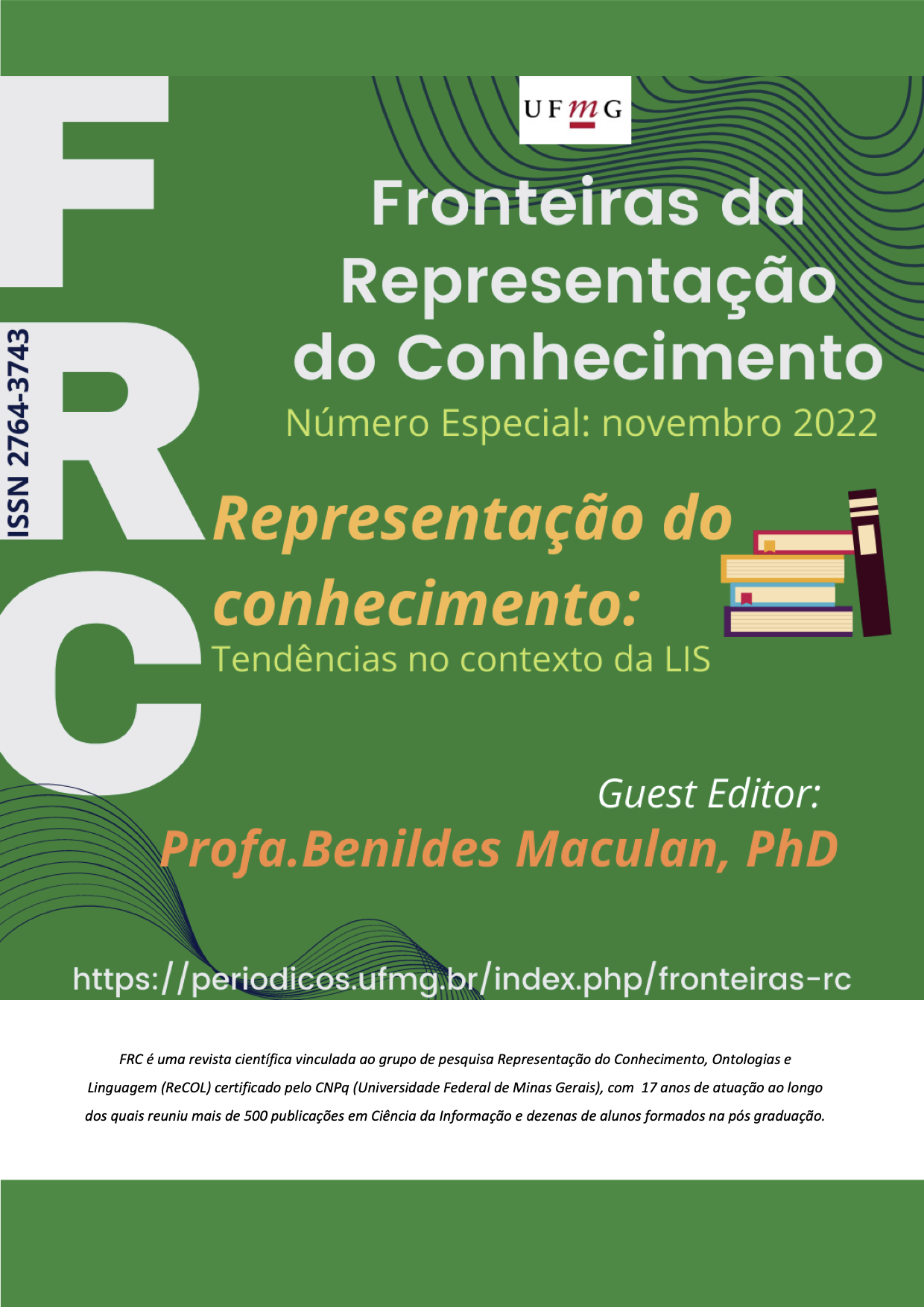From knowledge trees to rhizomes and rukus: plant metaphors in the relational organization of knowledge plant metaphors in the relational organization of knowledge
Main Article Content
Abstract
The tree has been used as a key metaphor, since the Middle Ages, to depict knowledge representation systems. However, the contemporary socio-technical context demands considerations that admit other representations of the ways in which
knowledge is produced, organized, and represented. In this sense, the purpose of this text
is to reflect on arboreal images used historically as representational symbols of knowledge
structures and, furthermore, to conjecture, within the scope of the transversal discussions
that involve the plane of sociobiodiversity involved in the production of knowledge, about
some of these representations used in different contexts and times. In the end, we arrive at
the representation of the Rhizome proposed by G. Deleuze and F. Guatari, the Baniana tree
by S. Ranganathan, and the Ruku tree, represented in the painting "The descent of the
Jenipapo shaman from the kingdom of medicines", (2021), produced by the Makuxi
indigenous artivist Jaider Esbell. The final considerations suggest that by broadening our
understanding of the tree as a representation of relationships and not of dichotomies or
hierarchies, we will be able to perceive, with more equity, the social, plural and
cosmological arrangements of knowledge.
Article Details
Issue
Section

This work is licensed under a Creative Commons Attribution 4.0 International License.
From: https://creativecommons.org/licenses/by/4.0/
You are free to:
- Share — copy and redistribute the material in any medium or format
- Adapt — remix, transform, and build upon the material
- for any purpose, even commercially.
- The licensor cannot revoke these freedoms as long as you follow the license terms.
Under the following terms:
-
Attribution — You must give appropriate credit, provide a link to the license, and indicate if changes were made. You may do so in any reasonable manner, but not in any way that suggests the licensor endorses you or your use.
- No additional restrictions — You may not apply legal terms or technological measures that legally restrict others from doing anything the license permits.
Notices:
- You do not have to comply with the license for elements of the material in the public domain or where your use is permitted by an applicable exception or limitation.
- No warranties are given. The license may not give you all of the permissions necessary for your intended use. For example, other rights such as publicity, privacy, or moral rights may limit how you use the material.


